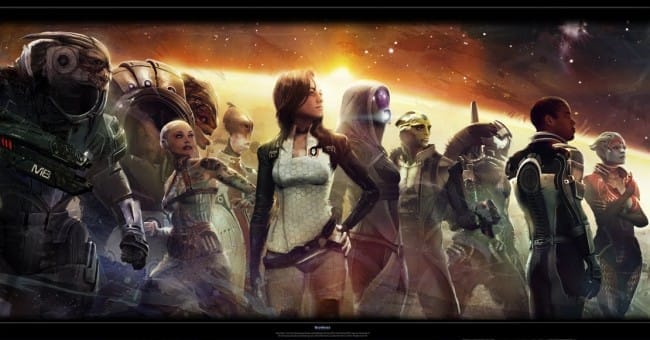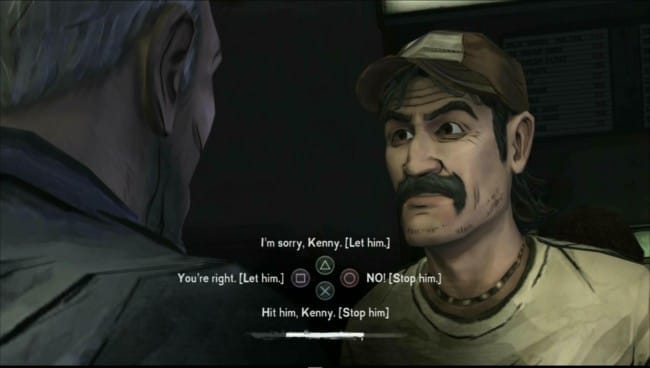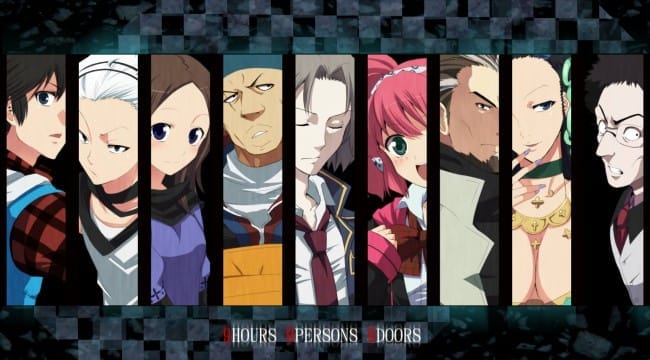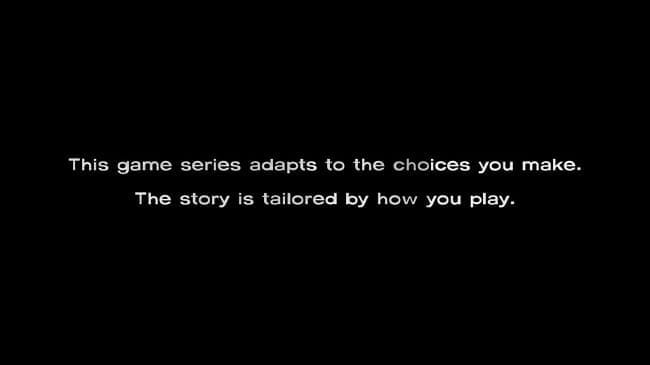Many reviewers, critics, and others in the gaming industry have for a long time hailed player choice as the one most important feature to any great game. The ability to choose where you go next, some dialogue choice, some significant plot point, like who lives or dies, and many more. All of which are heralded as great components that should be utilized more in games.
I am of course for more player choice in games, but I want real player choice. Few games give a player near total control of their gaming experience, excluding sandbox games like GTA or Minecraft. While sandbox games in their own way are games that give a player total control, they don’t necessarily let a player drive their own kind of story – not with elements within the game that is, i.e. stories created for the game specifically that a player interacts with.
To clarify further, I am strictly talking about games where the story plays a significant part in the game. Not multiplayer games, not sandbox games, not fighting games, etc. Games where the story is central, as I am specifically discussing choices that effect where the game is going – where the story is going.
What do I mean by “real” player choice? To first understand that, I think it is important to understand how choice we see employed in most games today is not a significant example of player choice.
Take the Bioware games, for example, like Dragon Age, Mass Effect, etc. Games like that allow you to choose what kind of dialogue you want to use. That in itself is limiting, as the game gives you a “choice” of responses to give. Then, consider the outcomes of those dialogues. In nearly all cases, the dialogue is nothing but a buffer to move the story along to the real, pre-scripted event/discussion that is to follow it.
They have no meaningful effect. The most that usually happens, which happens in so few instances that I am having trouble even remembering one, would be for you to choose some kind of dialogue and then later in the game have that character you were speaking with reference what you said to them.
In those moments, I have a smile on my face because, wow, the character remembered what I said to him/her. Well, no not really. I’m sure other people have had similar experiences, and while I think it is a neat little feature within a game, I think that it is far too simple to get such a reaction. We have had such low expectations when it comes to choice that something as simple as that can leave a big impression on us.
The use of dialogue trees in that sense gives us a false sense of significant player choice.

Sounds like some good player choice, right? Not really. Each area you go to recruit a new member has their own contained story in that one specific area. Those neatly contained stories have no carry over to the main story, other than the fact that you recruited a new team member.
The order in which you choose to recruit members has no implication later in the story either. It doesn’t matter that you recruited Garrus first and then Mordin, the Colony is still going to be attacked after you have recruited them.
That is just another false sense of choice.
One final example before I discuss what “real” player choice is. Telltale games are heralded for their storytelling ability and their freedom of choice in dialogue and action for their characters, with little messages like “Clementine will remember that.”
Looking at just The Walking Dead, the game is nothing but a series of successive story choices made by the player. Do you save him, or let him fall to his death? Do you leave a man to die in a bear trap to be eaten by zombies, or do you cut off his leg to save him? Do you let someone kill themselves because they know they will soon turn into a zombie?
Often those questions make it difficult to decide. I will commend them for that. However, the main plot, story, setting, and series of events that follow and progress in the story will always be exactly the same no matter who you save or what you do. At most, you may miss some small scenes here or there, or some dialogue with a character, but you will never miss anything significant to the story.
It is not as if saving one character over another changes the tone and meaning of the story, just who you choose to experience the rest of the story with. By that I mean it is not as if saving character A means the story now conveys tragedy as one family member has to deal with the death of another in the depressing world of The Walking Dead. As opposed to character B where the story may shift to something about triumph over evil, or something in that sense. Nothing really changes.
Ultimately, The Walking Dead is mostly full of near meaningless player choice. Seeing as games are essentially just a series of choices made one after another, there should be more instances where player choice has significant weight behind it. Most are simple choices, like shooting the guy in the window first before the guy in the corner of the room.

Most games just dress up and disguise choice in a way that makes them feel as if they have a real kind of weight behind them. For example, The Walking Dead makes it dramatic by going in slow motion, lowering the music and sound, and putting a bar that slowly dwindles away as you attempt to make your choice.
Ultimately, the “dramatic” choice has no real effect.
So what is “real” player choice? Real player choice is where the decisions made by players have significant and permanent effects on a game. Where making one decision over another removes the chance for the player to experience a part of the game because they chose to make the story go in another direction. Where you may not meet some characters, visit some area, or participate in some event.
I have not seen a better example of real player choice than in 999: Nine Hours, Nine People, Nine Doors (Or Zero Escape: Nine Hours… etc.) 999 is an adventure game that is dialogue heavy with some puzzle elements added in.
Every single choice in the game has an effect on not only how the story progresses, but how it ends. Making one choice removes any possibility for you to experience what happens with the story that begins with the other choice unless you replay the game. Each choice shifts where the story is going and how it ends significantly.

In many cases that mechanic allows a player to choose from multiple people to go into a door with, which leads to a lot of variability. Then there are some moments where you choose multiple groups to go in multiple doors adding even more choice that is completely up to the player. Who you send where changes the story significantly. One choice may lead to a character’s death; another decision later may remove the possibility from you finding out what happened to that character.
Just for another example, Bethesda games usually employ good amounts of real player choice as well. Like Fallout 3 and Megaton, the ability in most of their games to kill an NPC just so you can get what they’re wearing, etc.
To bring it full circle, I think that the end of Mass Effect 2 employs wonderful player choice that has a significant and permanent impact on the next game in the series. It may be somewhat old, but I won’t spoil it. People who know what I am talking about will understand what I mean, and those that don’t may have something to look forward to/ replay.
To address The Walking Dead one last time, and other Telltale games, there are instances where relatively significant choice does happen. I say “relatively” because most of the time it does not affect the main plot in any way, but instead changes the way a character acts. Certain decisions you make regarding them may change the way the act and interact with the player, which could have minor story implications later on. I am thinking specifically of a few interactions between Lee and Kenny’s family. But the effects are never more reaching than that.
Ultimately, though, player choice just has to have real weight behind it – real significance. Not just be something that is there to keep the player minimally engaged to give us the false sense that what we are doing matters in the game. Choices dressed up as they are in games like The Walking Dead are no more significant than my choice to use a sword over an axe, to kill one enemy first over another, or to choose some small dialogue that may be witty or interesting. All of which exist to keep us occupied until the next scripted event.
Real player choice has a visible impact in the game or significantly changes the direction of the story.
Have a tip, or want to point out something we missed? Leave a Comment or e-mail us at tips@techraptor.net












